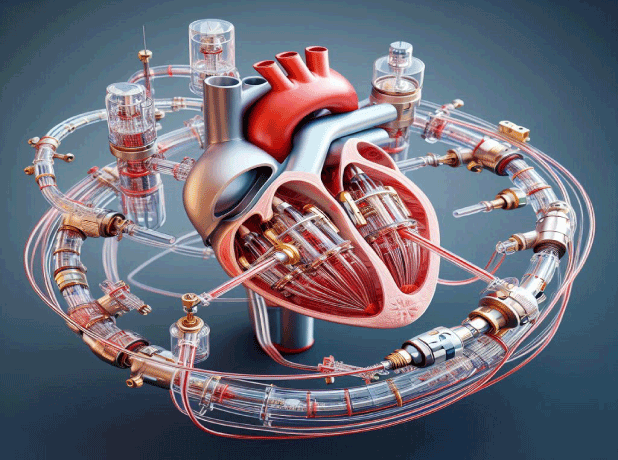
Abstract
Background
Active mechanical circulatory support (MCS) is associated with high complication rates. Reducing device-related complications may improve outcomes in patients with infarct-related cardiogenic shock (AMI-CS). This study aims to provide in-depth insight in the occurrence, specification and timing of complications in patients receiving active MCS, providing valuable starting points for clinical practice and future studies to reduce complications.
Methods
This real-world, multicentre study, using data from the Netherlands Heart Registration PCI-Registry, describes AMI-CS patients that underwent PCI and received MCS between 2017 and 2021 across 9 Dutch hospitals.
Results
This registry included 241 patients with a mean age of 59.7 years and predominantly male (78.0 %). Microaxial flow pump (MFP), VA-ECMO and MFP + VA-ECMO were used in 93 (38.6 %), 121 (50.2 %) and 27 (11.2 %) patients. MFP + VA-ECMO was associated with highest complication rates, particularly bleeding events (67 % vs. MFP: 33 % vs. VA-ECMO: 40 %). Differences in bleeding events persisted while accounting for competing risk of death (subdistribution hazard ratio (SHR) MFP + VA-ECMO vs. MFP: 2.33 [1.33–4.07]; SHR MFP + VA-ECMO vs. VA-ECMO: 2.00 [1.19–3.36]). SHR for VA-ECMO vs. MFP was 1.18 [0.74–1.90]). Bleeding events were observed within the first days of support, but also on the day of explant and thereafter. Access-site related bleeding events accounted for 51 % of all bleeding events.
Conclusions
Combined use of MFP and VA-ECMO was associated with higher complication rates, particularly bleeding events, compared to single device use. Complication rates between MFP and VA-ECMO were not significantly different. Importantly, patients are still at risk for bleeding events during and after explant of MCS devices.
We use cookies to provide you with the best possible user experience. By continuing to use our site, you agree to their use. Learn more
